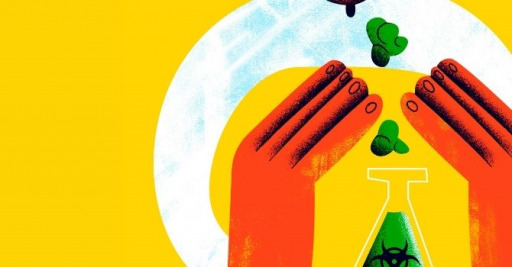Chemistry as a driver of innovation. A challenge to its teaching in the 21st century
An opinion article by Fernando García Tellado originally published in issue 9 of the journal Hipótesis, published by the University of La Laguna.
Chemistry is perhaps going through its lowest times as an attraction for vocational scientific careers, the lowest I have experienced in my long academic life. The causes of this vocational disaffection are many, but undoubtedly closely related to the image that chemistry has in our society as a polluting agent responsible for the destruction of the planet.
It is a catastrophic image that does not reflect reality but has become widespread. Society rejects chemistry and has no faith in it. However, at the same time it hopes a miracle molecule will emerge to cure cancer, bring Alzheimer sufferers back to normal consciousness, and transform solar energy into cheap and affordable energy for all. Now, in the midst of this ravaging pandemic, chemistry is expected to develop the antiviral drug that will rid us of COVID-19. Only those of us working in chemistry know what it takes to build molecules. If one day, at last, we manage to produce superconductors that operate at room temperature, or synthetic bacteria with biotechnological capacities; if one day all this comes into existence, it will not be done by the doctors, physicists, biologists, or engineers but in fact by chemists working as molecular architects. If these breakthroughs are to appear, they will emerge from chemistry. That is the strength of this discipline, and that is why it must be recognised as central.
However, all the signs are that chemistry as a scientific discipline is losing both its charm and its independence. It is true that no one now expects a new scientific revolution from chemistry, but its time has not passed, as some believe. True it is that most of the issues it faces have more to do with other disciplines than to chemistry itself; this is because they need chemistry to be better understood. The origin of life, molecular information, the ordered creation of complexity, etc. are all chemistry-based problems because they ultimately involve atoms and molecules. If we leave chemistry out, as many university courses of study are attempting to, we will lose the training we need to build the molecules required to sustain ourselves as a species on this planet. There are reasons why this may happen.
Some indication of this is the fact that in 2004, an editorial in the American Chemical Society proposed changing the name of the organisation to the Society for Molecular Sciences and Engineering. Shortly afterwards (2006), the journal Nature asked about the future of chemistry in a survey of leaders in their fields. More recently, in March 2015, the journal Science devoted an editorial to Chemistry and its Future. Against this backdrop, it is clear that we need to change the social image of chemistry and, in particular, the way we teach it.
The first is outreach: we need popularisers capable of making young people aware of the beauty of chemistry and its enormous potential for the future. This needs to be done in schools and colleges. Today's children live with and use nanotechnology without knowing it, but no one is in charge of explaining to them what this nanoworld is, how it works, how it is constructed, and more importantly, what role chemistry plays in it. This is not only a task for the government: chemists themselves, through their Societies and Colleges, will also have to participate, and above all, learn how to do it.
As for the way it is taught, we have to make the teaching of chemistry attractive to young people. Not only do we have fewer students interested in studying chemistry, but it is usually not the main choice of the ablest of their generation. Nonetheless, we need to bring the best, the most intellectually restless and creative, back to our classrooms and laboratories. This requires a change in the way this science is taught. Not only will it have to serve to train in the understanding of the molecular world, but also to provide a perspective of collaboration with other branches of science in the resolution of problems that cannot be solved without chemistry, but not by chemistry alone.
Active participation in multidisciplinary research teams, the only ones that will survive in the near future, requires new generations of chemists and their students to approach other disciplines, their methods and language. In my opinion, this is the great challenge facing chemistry teaching at present, not only in academic studies but also in the research field. Society demands a change in the teaching paradigm and the university has to face up to it.
The paradigm of the university as a driver of knowledge and research changed at the turn of the century. Society now also demands that our classrooms and laboratories train innovators, which seems not to be taken into account in Spanish universities. Many areas of the Canary Islands chemical community request funding to generate knowledge, but society demands that this knowledge be used to boost the economy and solve problems. These problems can be overcome through innovation and knowledge transfer. I find we are not training our students in this direction.
Most of the chemistry community in the Canary Islands is still anchored in 20th-century conceptions. Adapting to the new paradigm is the pending task, a challenge for the new generations of chemists involved in teaching and research.
[The image illustrating this article is by Carla Garrido]
